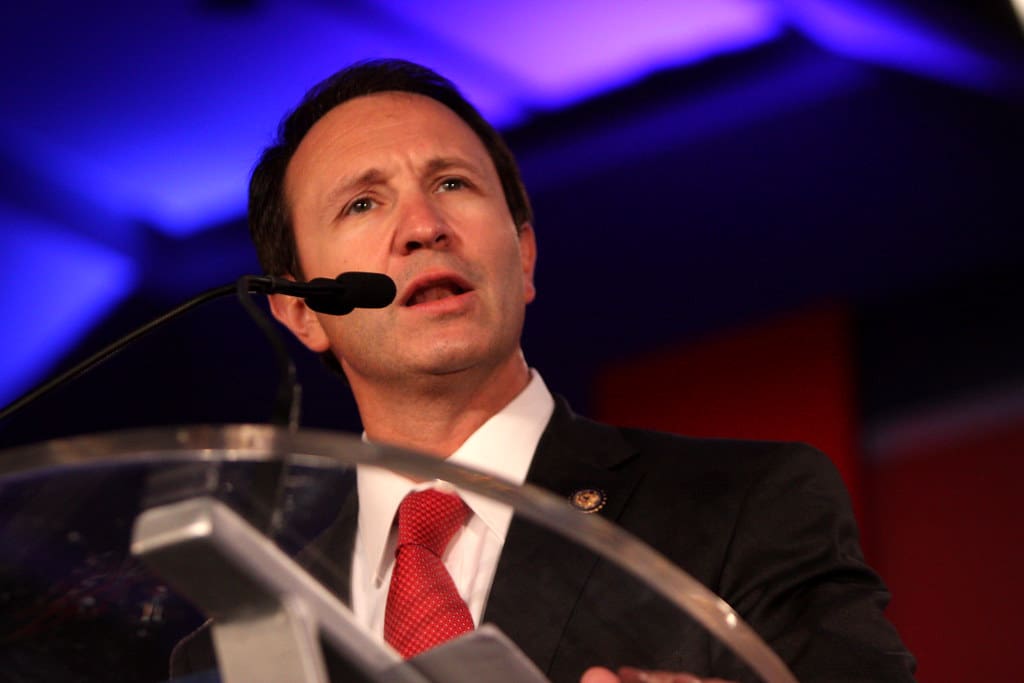Louisiana is over-reliant on federal largesse

(Oct. 9, column as published, here, on how Louisiana gets more of its budget from the federal government than any other state does.)
Full column, earlier version:
Louisiana state government is enjoying a great benefit, but at great fiscal risk – a risk state lawmakers should work quickly to mitigate.
A new study by Jennifer Butler and Tony Woodlief of the State Policy Network, a collection of right-leaning state think tanks, shows that of all the states in the union, Louisiana is the single most reliant on federal funds for its state government budget. An astonishing 51.6% of Louisiana’s state budget comes from national government sources. The national average is much lower (but still too high), at 37%, and not a single other state even reaches the 50% threshold.
First, let’s be clear on what this does and doesn’t mean. This is not the same, hackneyed statistic about which states supposedly “give more money to the federal government than they get back,” and which are vice versa. The originally proponent of that statistic, the late Sen. Daniel Patrick Moynihan, D-N.Y., abandoned that measure several years before he died when he realized that so many shifting factors went into that calculation that it was like comparing apples not just to oranges but to baseballs or something equally unrelated.
Instead, this is a much more objective measurement, just taking the state budget itself and examining how much of it originates from the feds.
On one hand, relying on the federal government for more than half of state-government spending is a rather neat trick. It means the state is getting far more bang for its own bucks.
On the other hand, this means Louisiana is living precariously. If the federal faucet is turned off or even slowed down, Bayou State government isn’t well positioned to take up the slack, and our citizens could find themselves suddenly bereft of necessary services.
The current federal government shutdown may bring home that reality sooner than later, although the results there aren’t plain to see yet. At some point, though, with the federal government suffering from a gobsmacking $37 trillion in debt, the reckoning will come due. By careful design or by some sort of financial panic or collapse, the gusher of federal funds will slow to something closer to a trickle.
This is where the brief but insightful SPN report is quite helpful. It gives the following advice to state lawmakers:
“Now is the time to hardwire policies that reduce federal dependency and strengthen resilience. Fortunately, several states are already taking steps to revitalize federalism and fiscal independence—by requiring legislative approval for federal funds, planning for potential funding losses, increasing transparency around federal guidance, and limiting judicial deference to agencies.”
SPN reports that Tennessee and Oregon, for example, “require legislative approval before agencies can even apply for or accept certain federal funds. This ensures elected representatives, not bureaucrats, weigh the costs and conditions.”
Meanwhile, Nebraska, Utah and Ohio “require agencies to plan for the potential loss of federal dollars, protecting budgets from sudden disruptions.” And Oklahoma, Indiana and other states take several other recommended steps to ensure that states are prepared both to understand
the ramifications of federal policy changes and to be more self-reliant if federal funding becomes limited.

Part of this might mean tightening state government belts even further. Part might mean finding new revenue sources within the state. Part might involve planning for orderly, rather than haphazardly spur-of-the-moment, slowdowns of state functions in unexpected circumstances such as an extended federal shutdown.
All of this will take careful legislating and wise administrative planning. None of it is the political equivalent of sexiness, in other words it’s not likely to earn great attention or public renown. It is, though, or at least should be, part of the nuts and bolts of responsible public service.
Louisiana lawmakers and agency chiefs should pay heed to the SPN report – and start reacting accordingly.
— 30 —





